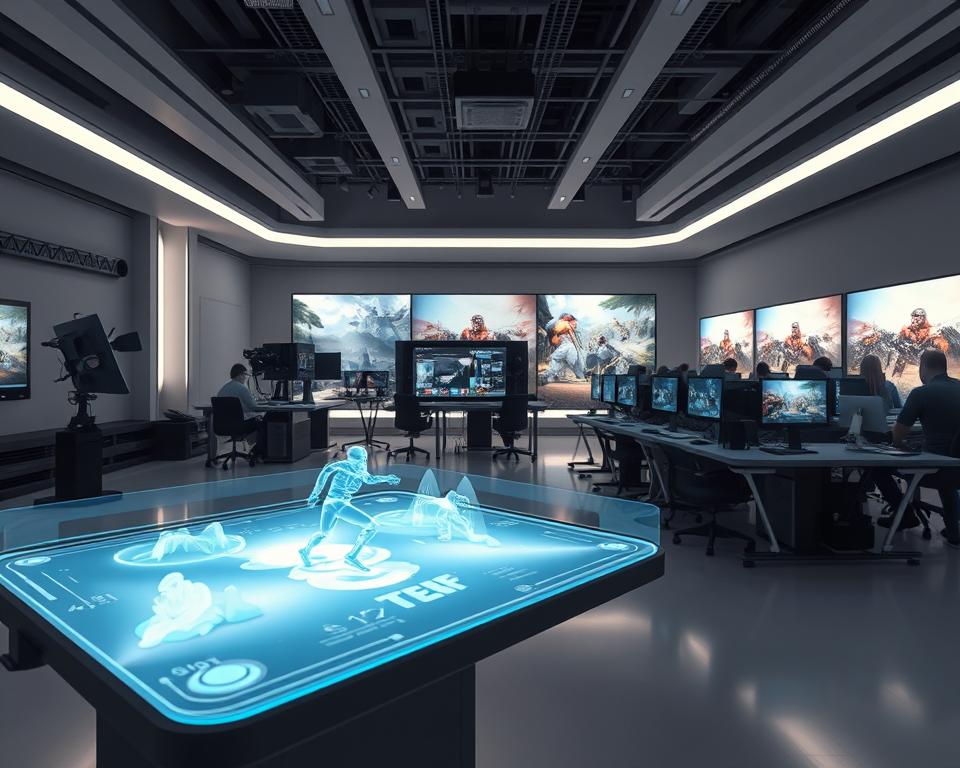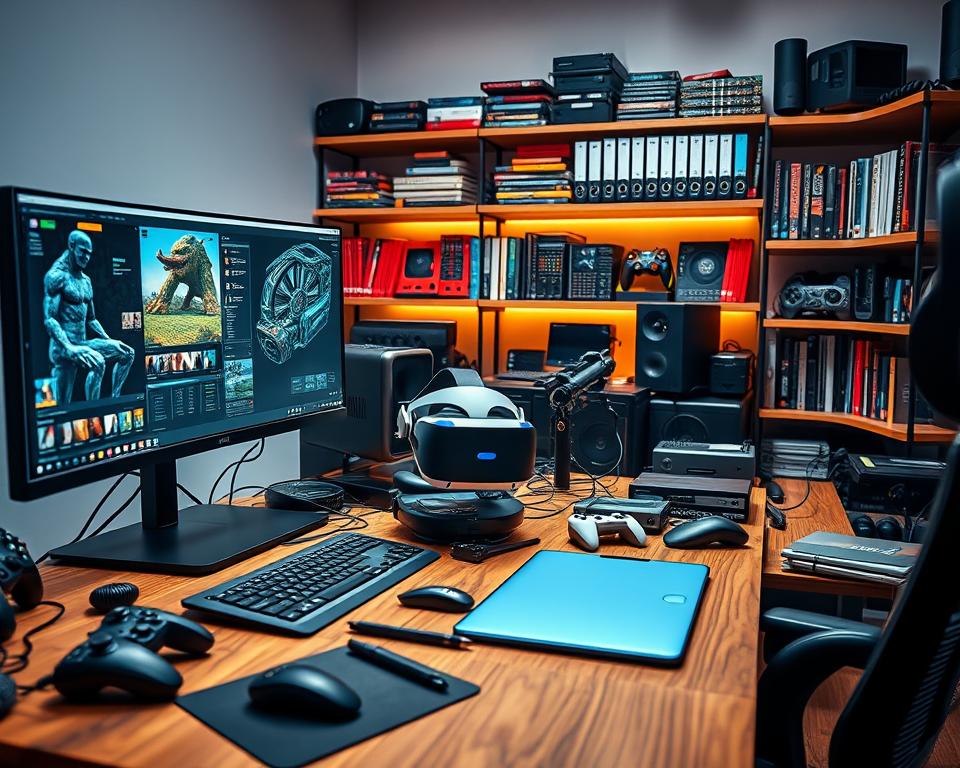Transforming : The gaming industry is witnessing a significant transformation, driven by innovative tools that are bridging the gap between creativity and technical execution. Game developers face numerous challenges, from complex coding to monetization strategies. However, with the emergence of cutting-edge software development tools, these barriers are being overcome, paving the way for a more sustainable and inclusive gaming future.
Xsolla is at the forefront of this revolution, providing developers with the resources they need to drive growth and success. By leveraging these emerging tools, game creators can focus on what matters most – crafting engaging experiences that captivate audiences worldwide.
Transforming The Evolution of Game Development Ecosystems
The game development landscape has undergone a significant transformation, driven by emerging tools and technologies that are making game creation more accessible and efficient. This evolution is not just about new features; it’s about fundamentally changing how games are developed.
From Complex Coding to Accessible Platforms
The early days of game development were marked by complex coding requirements, limiting the field to those with extensive programming knowledge. However, the landscape has shifted dramatically with the introduction of more accessible platforms.
Breaking Down Technical Barriers
Modern game development tools have significantly reduced the technical barriers to entry. Visual scripting systems and low-code solutions are empowering developers to create complex game mechanics without deep programming knowledge.
Transforming: Visual Scripting Systems
Visual scripting systems allow developers to create game logic using graphical interfaces rather than text-based code. This approach not only speeds up development but also makes it more intuitive, especially for those with a background in design or art.

The Democratization of Game Creation
The democratization of game creation is one of the most significant outcomes of the evolution of game development ecosystems. With more accessible tools, a new generation of developers is emerging, including indie developers and beginners who are leveraging these resources to create innovative games.
Indie Developer Success Stories
Indie developers are now able to compete with larger studios thanks to accessible game development tools. Programs like Generation’s Junior Unity Game Developer in Colombia are exemplary, providing training and mentorship that equip aspiring developers with the necessary skills.
Transforming: Low-Code Solutions for Beginners
Low-code solutions are particularly beneficial for beginners, allowing them to focus on game design rather than getting bogged down in complex coding. These solutions are enhancing programming skills and providing valuable coding resources.
| Feature | Traditional Coding | Modern Game Development Tools |
|---|---|---|
| Learning Curve | Steep, requiring extensive programming knowledge | Gentle, with visual interfaces and low-code options |
| Development Speed | Slow, due to manual coding and debugging | Fast, with automated tools and visual scripting |
| Accessibility | Limited to those with programming skills | Open to developers with various skill levels |
By breaking down technical barriers and providing accessible platforms, the game development industry is fostering a more inclusive and innovative environment. As a result, the future of game development looks bright, with a diverse range of creators contributing to the evolution of this dynamic field.
Transforming: Empowering Developers Through AI-Assisted Tools
The integration of AI in game development is a game-changer, offering developers innovative solutions to enhance their workflow and creativity. AI-assisted tools are not only streamlining the development process but also opening up new possibilities for game creators.
Procedural Content Generation Technologies
Procedural content generation is a technique that uses algorithms to create game content on the fly. This technology is revolutionizing the way developers create game environments, characters, and assets.
Terrain and Level Design Automation
AI-powered procedural generation can automate the creation of terrains and level designs, reducing the manual effort required to craft detailed game worlds. For instance, tools like Beam SDK simplify the integration of wallet features into games, enabling players to earn NFTs and tokens, thus allowing developers to focus on gameplay innovation.
- Reduced development time
- Increased game world diversity
- Enhanced player experience
Character and Asset Generation
AI can also generate characters and assets, such as textures and 3D models, with varying levels of complexity. This capability not only saves time but also enables the creation of more diverse and detailed game assets.
| Aspect | Traditional Method | AI-Assisted Method |
|---|---|---|
| Time | Manual creation, time-consuming | Automated, faster |
| Variety | Limited by human creativity and time | Highly variable, diverse output |
| Quality | Dependent on artist skill | Consistent, can be refined |

AI-Powered Debugging and Testing Solutions
AI is also being used to improve the debugging and testing phases of game development. AI-powered tools can automatically identify and fix bugs, reducing the workload for developers and ensuring a smoother gaming experience.
Machine Learning for Game Balancing
Machine learning algorithms can analyze player behavior and game data to optimize game balancing. This ensures that games are challenging yet enjoyable, adapting to the player’s skill level over time.
By leveraging these AI-assisted tools, developers can focus more on creative aspects, enhancing the overall gaming experience.
Transforming: Collaborative Tools Reshaping Team Dynamics
Collaborative tools are revolutionizing the way game development teams work. These tools are not only enhancing productivity but also fostering a more cohesive and dynamic team environment. Empowering Developers through collaborative technologies is at the forefront of this change.
Version Control Systems for Game Assets
Version control systems are crucial for managing the complex array of assets in game development. Tools like Git enable teams to track changes, collaborate on code, and maintain different versions of their project. This ensures that all team members are working with the most current assets, reducing errors and improving overall efficiency.
Real-Time Collaboration Platforms
Real-time collaboration platforms are revolutionizing how game development teams work together. These platforms allow multiple developers to work on the same project simultaneously, enhancing communication and speeding up development. Cloud-based solutions are particularly effective, offering flexibility and scalability.
Cloud-Based Development Environments
Based development environments provide a centralized hub for game development, allowing teams to access projects from anywhere. This flexibility is invaluable for remote teams, enabling seamless collaboration across different locations.
Remote Team Management Solutions
Effective remote team management is crucial for the success of distributed game development teams. Solutions that offer project management, time tracking, and communication tools help keep teams aligned and focused on their goals.
Community-Driven Resource Sharing
The game development community is known for its collaborative spirit, with many developers sharing resources and knowledge. Community-driven resource sharing not only accelerates development but also fosters innovation. Platforms that facilitate this sharing are becoming increasingly important.
Asset Marketplaces and Libraries
Asset marketplaces and libraries provide developers with access to a wide range of resources, from 3D models to code snippets. These repositories save time and reduce the need to create everything from scratch, allowing developers to focus on other aspects of game development.
Knowledge Exchange Forums
Knowledge exchange forums are vital for game developers, offering a space to ask questions, share experiences, and learn from others. These forums help developers overcome challenges and stay updated with the latest trends and technologies.
In conclusion, collaborative tools are transforming the game development landscape. By leveraging version control systems, real-time collaboration platforms, and community-driven resource sharing, teams can work more efficiently and effectively. As the industry continues to evolve, the importance of these tools will only grow.
“The future of game development lies in the ability of teams to collaborate effectively, leveraging the right tools to bring their creative visions to life.”
Transforming The Future Landscape of Game Development Technology
As the Fourth Industrial Revolution unfolds, the game development industry is poised for significant transformation. Xsolla’s adoption of emerging technologies like blockchain and cloud gaming is paving the way for a more sustainable, accessible, and inclusive industry.
The future of game development will be shaped by advancements in software development tools, enabling developers to create more complex and engaging experiences. The integration of AI-assisted tools, cross-platform development frameworks, and collaborative tools will continue to empower developers, streamlining workflows and fostering creativity.
As the industry continues to evolve, we can expect to see new innovations in game development technology, driving growth and pushing the boundaries of what is possible. With the right software development tools, developers will be able to unlock new opportunities, creating immersive experiences that captivate audiences worldwide.












